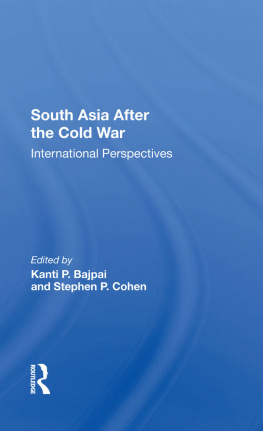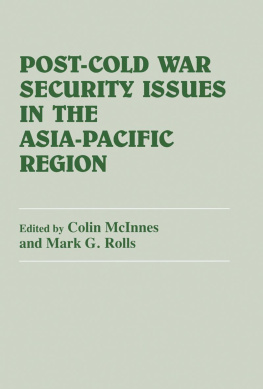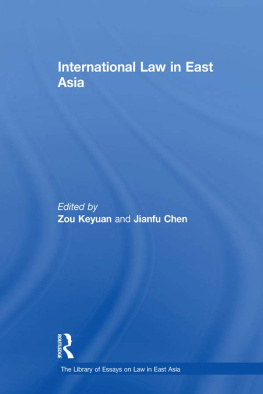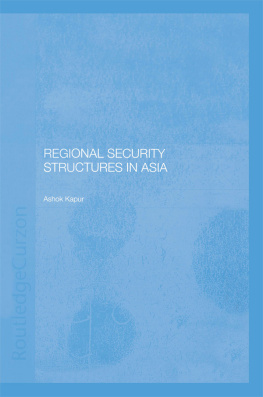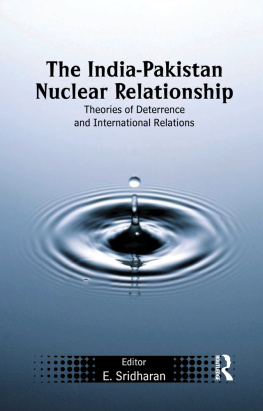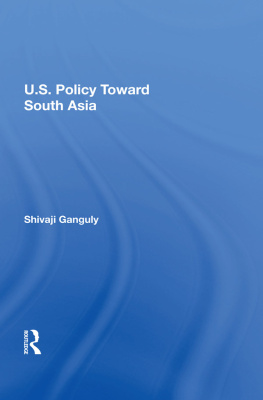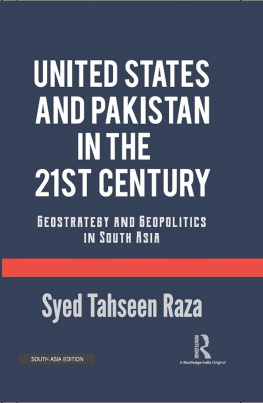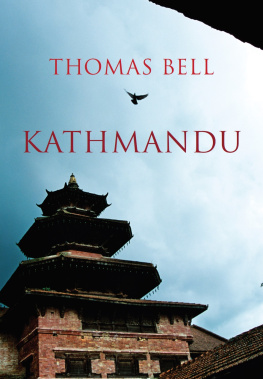South Asia After the Cold War
Published in Cooperation with the Program in Arms Control, Disarmament, and International Security, University of Illinois at Urbana-Champaign
South Asia After the Cold War
International Perspectives
Edited by
Kanti P. Bajpai
and Stephen P. Cohen
First published 1993 by Westview Press, Inc.
Published 2019 by Routledge
52 Vanderbilt Avenue, New York, NY 10017
2 Park Square, Milton Park, Abingdon, Oxon OX14 4RN
Routledge is an imprint of the Taylor & Francis Group, an informa business
Copyright 1993 Taylor & Francis
All rights reserved. No part of this book may be reprinted or reproduced or utilised in any form or by any electronic, mechanical, or other means, now known or hereafter invented, including photocopying and recording, or in any information storage or retrieval system, without permission in writing from the publishers.
Notice:
Product or corporate names may be trademarks or registered trademarks, and are used only for identification and explanation without intent to infringe.
A CIP catalog record for this book is available from the Library of Congress.
ISBN 13: 978-0-367-28796-2 (hbk)
Contents
, Prime Minister G. P. Koirala
PART ONE
Overview
, Kanti P. Bajpai and Stephen P. Cohen
Edward A. Kolodziej
PART TWO
South Asian Region
, Shelton U. Kodikara
, Baladas Ghoshal
, Maqsudul Hasan Nuri
, Partha S. Ghosh
PART THREE
India and Pakistan
, Pervaiz Iqbal Cheema
, Lieutenant General M. L. Chibber
PART FOUR
Nuclear Proliferation
K. Subrahmanyam
, Clifford E. Singer
, Hasan-Askari Rizvi
PART FIVE
South Asia and Beyond
, Marvin G. Weinbaum
, Vice Admiral Mihir K. Roy
Kanti P. Bajpai is Resident Fellow, Rajiv Gandhi Institute for Contemporary Studies, Rajiv Ghandi Foundation, New Delhi.
Pervaiz Iqbal Cheema is Professor, Department of International Relations, Quaid-i-Azam University, Islamabad.
Lieutenant General M. L. Chibber (retired) is an author and consultant, and was head of Northern Command, Indian Army.
Stephen P. Cohen is Professor of History and Political Science, University of Illinois at Urbana-Champaign, and in 1992-93 was Scholar-in Residence, Ford Foundation, New Delhi.
Partha S. Ghosh is Associate Director, Indian Council of Social Science Research, New Delhi.
Baladas Ghoshal is Professor, Centre for South and South East Asian Studies, Jawaharlal Nehru University, New Delhi.
Shelton U. Kodikara is Professor Emeritus, Department of Political Science, Peradeniya University, Sri Lanka, and is now Director, Regional Centre for Strategic Studies, Colombo.
Edward A. Kolodziej is Research Professor, Department of Political Science, University of Illinois at Urbana-Champaign.
Maqsudul Hasan Nuri is a Research Fellow, Institute for Regional Studies, Islamabad.
Hasan-Askari Rizvi is Professor of Political Science, Punjab University, Lahore.
Vice Admiral Mihir K. Roy (retired) is a consultant in India and the former recipient of a Nehru Memorial Fellowship.
Clifford E. Singer is Professor of Nuclear Engineering, University of Illinois at Urbana-Champaign.
. Subrahmanyam is former director of the Institute of Defense Studies and Analyses, and visiting Professor, Jawaharlal Nehru University, New Delhi.
Marvin G. Weinbaum is Professor of Political Science and Director, Program in South and West Asian Studies, University of Illinois at Urbana-Champaign.
Stephen P. Cohen
In mid-March 1992, a group of forty scholars, journalists, strategists, and government officials met in Kathmandu, Nepal, to assess the post-Cold War world. The meeting marked both a summing up and a beginning. Many of the conference participants had been associated at one time or another with the Program in Arms Control, Disarmament, and International Security (ACDIS) at the University of Illinois at Urbana-Champaign. Founded in 1978, ACDIS had from its very first year recruited scholars from South Asia (and scholars working on South Asia). Much of this work was supported by a continuing grant from the Ford Foundation (which also contributed major support for the Kathmandu meeting), but Illinois was also "home" for a number of Fulbright and Asia Foundation grantees. The meeting in Kathmandu provided an opportunity for these individuals to again meet with each other and with faculty and staff associated with ACDIS.
But the Kathmandu meeting was also a beginning. One of the objectives of the Ford-Illinois project on regional security has been to facilitate the meetings of regional scholars. It has been difficult for Indians and Pakistanis, in particular, to meet on a regular basis and discuss current security and arms control problems. Travel to either country is more difficult for regional scholars than for outsiders. Kathmandu provided an opportunity to continue and deepen this dialogue and to discuss mechanisms by which regional scholars and strategists might improve their contacts with non-South Asians.
Further, a number of scholars who had not been associated with Illinois and ACDIS participated in the Kathmandu meetings. We wanted to ensure a diverse group and were able to take advantage of the presence, in South Asia, of two Russian scholars and one U.S. scholar working on a separate but related project dealing with Afghanistan and Kashmir. We were also able to add one Chinese and one Sri Lankan scholar to the group; the contribution of the latter, Shelton Kodikara, is included here.
The Kathmandu meeting was organized around a number of essays, only some of which have been included in this book. There was some duplication of content, and an outside editorial committee advised us on revisions and selections for this volume. Further, all of the chapters reproduced here were extensively revised in early 1993, and the chapter by K. Subrahmanyam is entirely new.
The chapters in this volume represent a wide range of subjects and a diversity of approach. They also reflect different national styles, different perceptions of what the major post-Cold War security issues are likely to be, and even different conceptions of what is meant by "security." As an American who has spent much of his professional career studying security issues in South Asia, I am pleased to see among non-regional specialists a growing awareness of the security implications of social, economic, and even ecological problems. As the world moves away from bipolarity, the underlying domestic causes of many conflicts become more apparent, and traditional (that is, military-centered, post-World War II) notions of security are placed in a larger perspective. On the other hand, many of the chapters in this book, especially by South Asians, demonstrate a growing awareness of the utility of conflict-resolution (or confidence-building) techniques that have been developed in a Cold War context. "CBMs" became part of the South Asian dialogue after 1985, and the Kathmandu meeting explored their application to a variety of regional problems.
The substantive discussions at Kathmandu ranged over a number of issues, but chief among these were nuclear proliferation and Kashmir. In an attempt to put these contentious but important problems in a wider context, Dr. Kanti Bajpai and I have drawn on a separate study of regional conflict resolution and regional security for our own contribution to this book.

